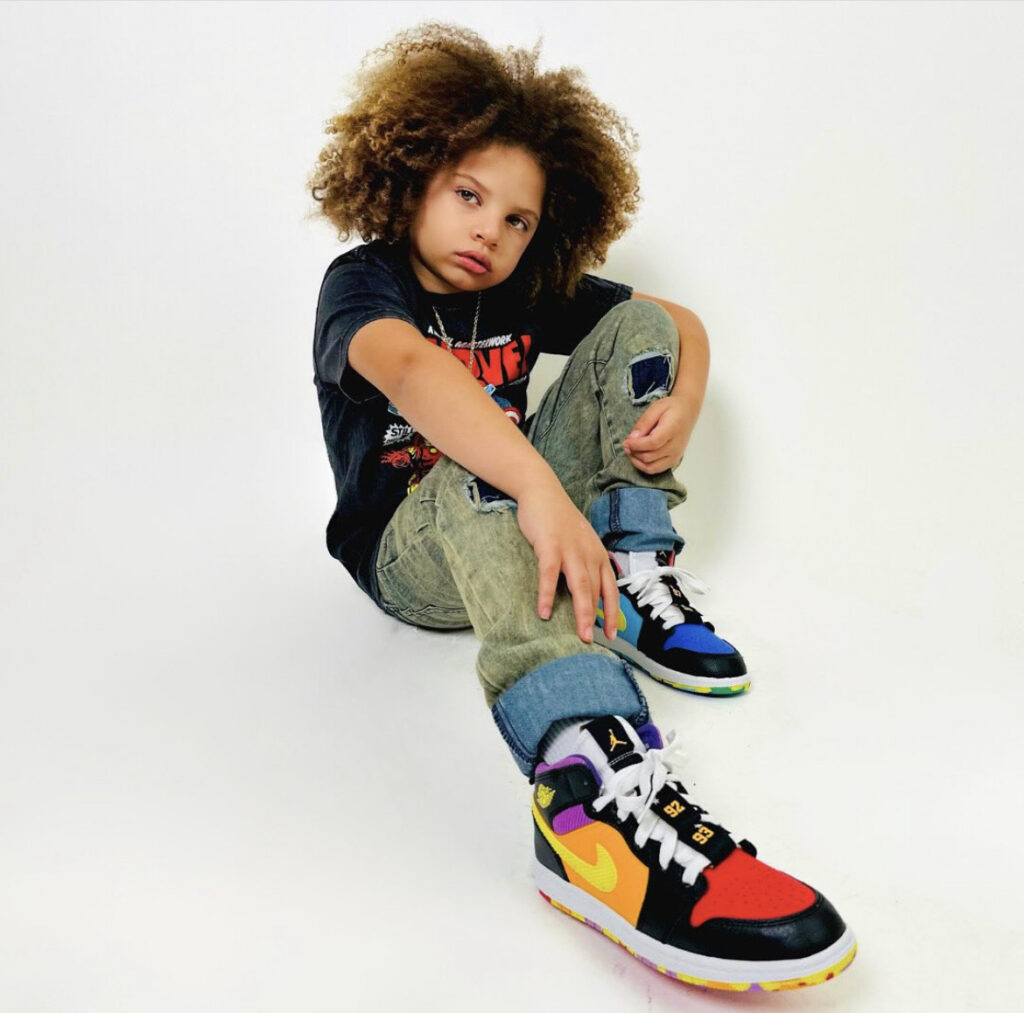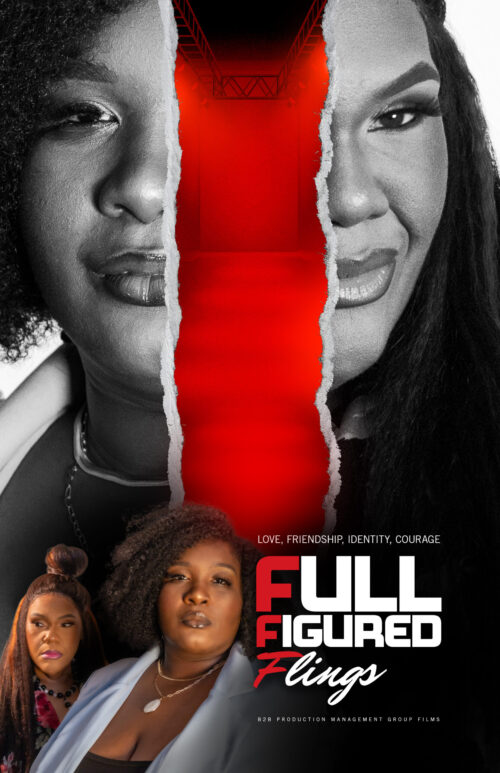We Speak Actors
King Moore: A Rising Star on a Mission to Inspire and Unite

At just 75 pounds, 8-year-old King Moore is emerging as a powerful voice for the Alpha generation. With a blend of music, acting, and political activism, he is capturing hearts across the nation. King’s radiant smile and relentless determination have made him a sensation. With visionary manager and Grammy-winning music publisher Tony Mercedes—known for hits like Ed Sheeran’s “Shape of You” and TLC’s “No Scrubs”—King’s debut single “ABC,” released on April 30, 2024, has already amassed over four million views on YouTube.

But King’s ambitions extend far beyond personal fame. After a memorable FaceTime meeting with iconic songwriter Jackie DeShannon, he proposed a reimagining of her classic song “Put a Little Love in Your Heart.” This sparked the creation of The King Moore Unity Project, where he collaborated with six handpicked young artists and Grammy-nominated producer Sean McMillion to record the iconic track. The project aims to inspire hope and healing in an increasingly divisive world. As Tony Mercedes aptly noted, “The message was bigger than the melody,” emphasizing that with determination, anything is possible.
Jackie DeShannon reflected on the collaboration, saying, “The Angels came down from Heaven and sang my song. My brother Randy would have been so proud. I know he’s watching over me always.” The single is now available through Tribeca Records and Tony Mercedes Music.

King’s journey began at just three years old, nurtured by the unwavering support of his family. This year alone, he has starred in a national commercial for AT&T, joined the Dreamfest Tour alongside former Nickelodeon star That Girl Lay Lay, and acted in two feature films: Cora Bora and DreamWorks’ animated masterpiece Wild Robot, featuring Lupita Nyong’o. His impressive accomplishments caught the eye of Daytime Emmy-winning talk show host Tamron Hall, leading to a surprise invitation to her “Big Dreamers” series. On the anniversary of her 1,000th episode, Tamron committed to making King’s dream a reality by becoming the Executive Producer of his television show, “Everyone Loves King.” After the show, King exclaimed, “Today was the best day of my life!”

In addition to his entertainment endeavors, King was invited to the White House to participate in a Gun Violence Prevention initiative, where he moved lawmakers with his poignant statement: “Kids make up fifty percent of the population, but they also make up one hundred percent of the future.” He later recorded the song “Safe at School” to advocate for stricter gun safety laws, emphasizing the need for safer environments for his generation. “As a kid from the Alpha generation, and bring a special representative with Celebrities Against Gun Violence (CAGV), I know that better gun safety laws mean better chances for my generation to feel safe at school,” he asserted. King now travels the country speaking out about school safety while on the Dreamfest kids’ tour.

King Moore holds the distinction of being the youngest person ever to receive a proclamation from the city of Atlanta and the youngest hip-hop artist invited to speak at the White House. King and some of the members of the Unity Project were also the youngest to appear Live on stage at Times Square in celebration of International Peace Day to perform “Put A Little Love in Your Heart.”
Despite his many accomplishments, King cherishes the wisdom of Dwayne “The Rock” Johnson, who said, “It’s nice to be important, but it’s more important to be nice.” With this guiding principle, King is on a mission to transform not just the future of his generation but the world around him. While the ultimate outcome of his remarkable journey remains uncertain, one thing is clear: King Moore is destined to be remembered as one of the hardest-working kids in show business.
The official website for King Moore may be found at https://www.kingmooreworld.com
We Speak Actors
Full-Figured Flings Teaser Nears 14K Views – Director of Photography Offers Special Father’s Day Release

Back 2 the Basics Production Management Group is proud to announce the official teaser premiere for FFF: Full-Figured Flings, a bold and unapologetic new film celebrating full-figured women and challenging the norms of beauty in Hollywood. Clocking in at just 46 seconds, the teaser doesn’t waste a moment, delivering a powerful visual and emotional punch that sets the tone for a project rooted in body positivity, size inclusivity, and cultural truth.
Premiering ahead of the 20th anniversary of Phat Girlz (2006), FFF serves as both homage and evolution. The film expands the conversation around colorism, sizeism, and shapeism, spotlighting women who have often been cast aside, sidelined, or silenced.

“This teaser is more than a preview—it’s a declaration,” said Lillie Mae Jones, creator and producer. “FFF is our love letter to the women who’ve never been centered but have always been essential. We’re not just telling stories—we’re shifting the lens.”
FFF: Full-Figured Flings is currently in development as a non-union independent production, with plans to release in 2026. The film invites audiences and allies to follow, support, and amplify the message through community engagement, open casting calls, and creative collaborations—including the launch of a nationwide call for a “Big Girl Anthem” to serve as the film’s official theme song.


Accept the Challenge…
The buzz is building fast around the highly anticipated full-figured fashion experience FFF, and now there’s a challenge on the table that fans won’t want to miss.
After racking up 11,000 views in less than 10 days, the official teaser video for FFF on YouTube is quickly gaining momentum. And now, the film’s Director of Photography, Dominique Perry, has thrown down a bold offer:
“If we hit 20,000 views before Saturday, June 14th, I’ll drop an exclusive second teaser on Father’s Day.”
This is more than a film—it’s a movement. FFF is a high-fashion, high-impact visual celebration of full-figured women taking a stand for representation, inclusion, and power on and off the runway.
Here’s how you can help make it happen: Watch the teaser now on YouTube. Like, comment, and subscribe. Share it with your community and post why YOU stand in solidarity with full-figured women
Watch here for a taste of the boldness, beauty, and energy
-

 We Speak Volleyball1 week ago
We Speak Volleyball1 week agoBuilt for the Pressure, Wired to Compete: Loretta Duby’s Passionate Pursuit of Purpose Through Volleyball
-

 We Speak Soccer6 days ago
We Speak Soccer6 days agoNo Entry Allowed: How Austin Fortner Is Becoming a Standout Keeper with Confidence and Control
-

 We Speak Football7 days ago
We Speak Football7 days agoFrom Snap to Touchdown: How Niah Reyes Plays the Game with Heart and Hustle
-

 We Speak Coaches1 week ago
We Speak Coaches1 week agoCoach of Culture, Heart of a Movement: The Extraordinary Journey of Daniel Moore, Pioneer of Women’s Flag Football and Builder of Young Lives





















